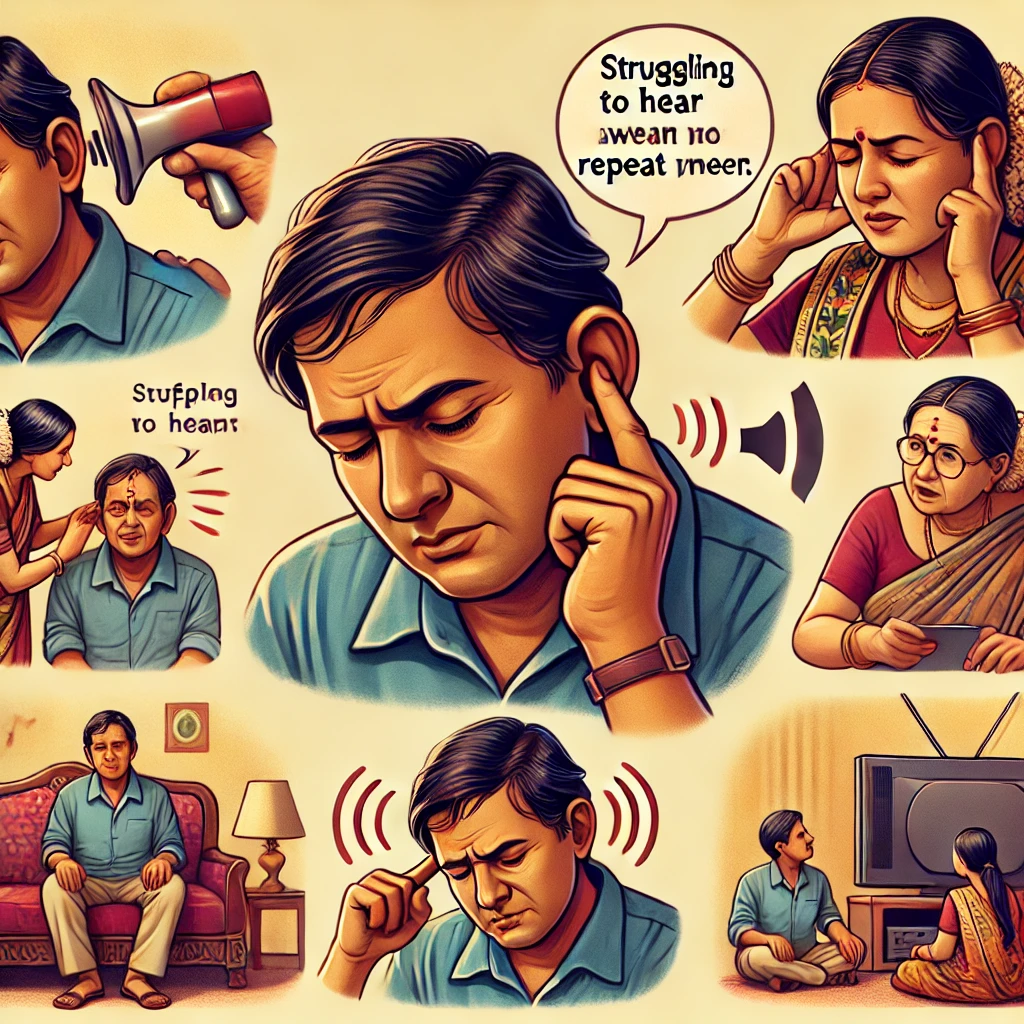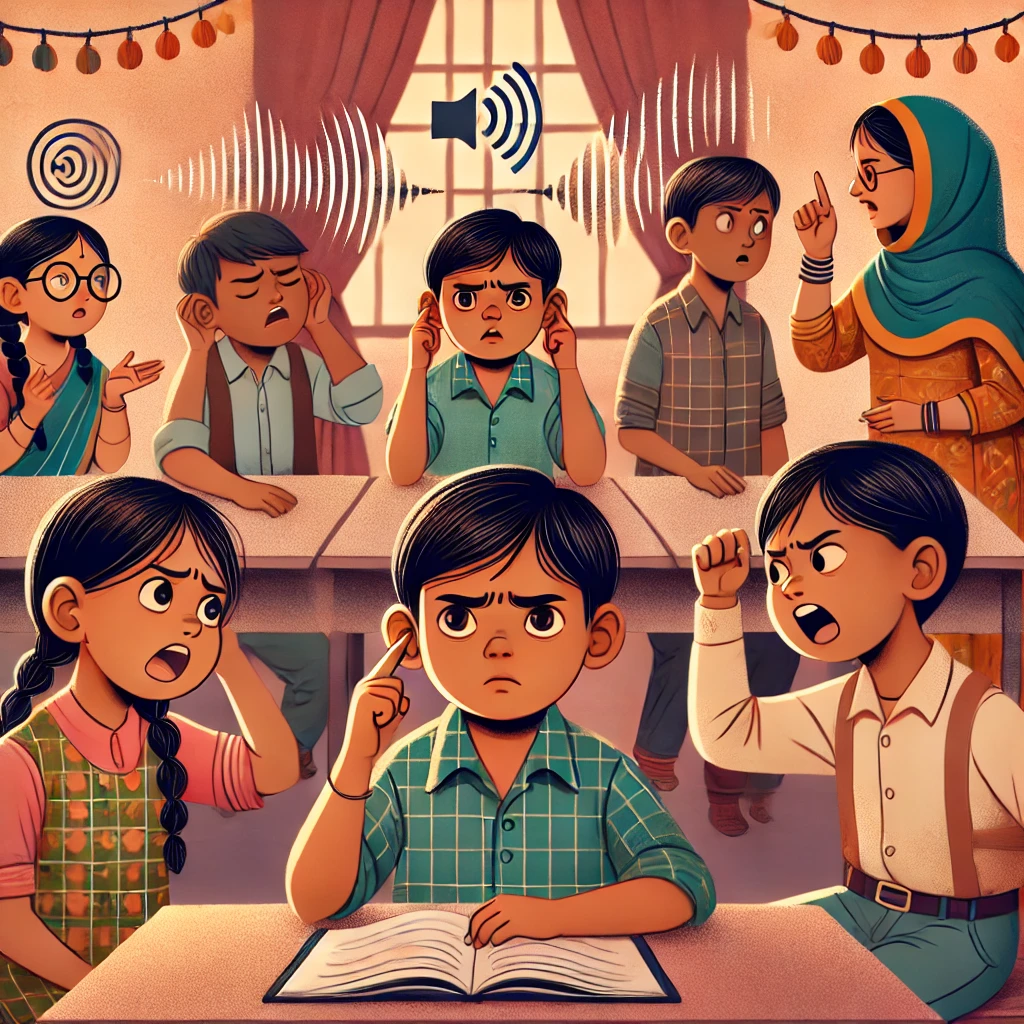
Most common cause of hearing loss is ageing, as we grow older we lose our hearing
Definition of hearing loss/What is Hearing Loss?
Any reduction in hearing sensitivity or inability to hear sounds is termed as hearing loss. The most common cause of hearing loss is ageing, as we grow older we lose our hearing. Hearing loss can occur at birth or later in life as well.

Signs of hearing loss
You may have problem with your hearing if:
- difficulty hearing other people clearly and misunderstanding what they say, especially in noisy places
- asking people to repeat themselves
- listening to music or watching TV with the volume higher than other people need
- difficulty hearing on the phone
- finding it hard to keep up with a conversation
- feeling tired or stressed from having to concentrate while listening
Signs of hearing loss in children
Your child may have a problem with their hearing if they:
- are slow to learn to talk, or aren’t clear when they speak
- don’t reply when you call them
- talk very loudly
- ask you to repeat yourself or respond inappropriately to questions
- turn up the volume of the TV very high

Measurement of Sound
Decibel is the unit used to measure the strength of sound. The human ear is extremely sensitive and is able to pick up very low and loud decibel sounds. Degree of hearing loss refers to severity of hearing loss.
Degree of Normal Hearing – Hearing loss
- 0 to 20 dBHL Normal Hearing
- 20 to 40 dBHL Mild Hearing loss
- 40 to 60 dBHL Moderate Hearing loss
- 60 to 70 dBHL Moderately-severe Hearing loss
- 70 to 90 dBHL Severe Hearing loss
- 91 dBHL and more Profound Hearing loss
Different sound levels in daily listening
Loudness level of speech
- 40 dB SPL Soft level of speech
- 65 dB SPL Conversational level of speech
- 80 dB SPL Loud level of speech
- 120 dB SPL Threshold of pain
